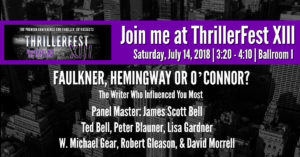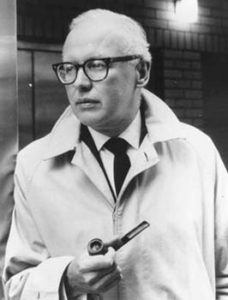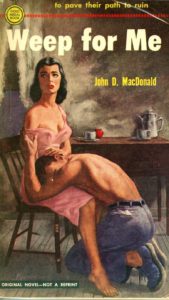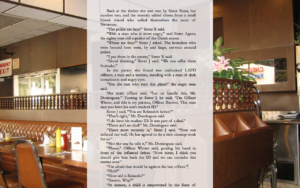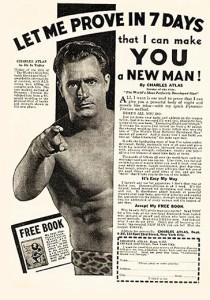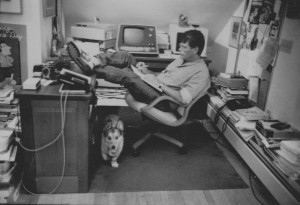by James Scott Bell
@jamesscottbell
 So Tom Brady has retired. He’s one of the few superstars who managed to go out on top and on his own terms. So many others have hung on past their primes as we averted our eyes—Joe Namath hobbling around on two bad knees for the Rams; Shaquille O’Neal lumbering up and down the court like a bear stuck with a tranquilizer dart (in a Celtics uniform yet!); Muhammad Ali getting his clock cleaned by Larry Holmes (who cried after what he’d done to his hero).
So Tom Brady has retired. He’s one of the few superstars who managed to go out on top and on his own terms. So many others have hung on past their primes as we averted our eyes—Joe Namath hobbling around on two bad knees for the Rams; Shaquille O’Neal lumbering up and down the court like a bear stuck with a tranquilizer dart (in a Celtics uniform yet!); Muhammad Ali getting his clock cleaned by Larry Holmes (who cried after what he’d done to his hero).
Brady steps away while still at the top of his game.
There is now no question (and you can just ask Sue Coletta if you don’t believe me) that Tom Brady is the greatest quarterback of all time. But he may be more—perhaps the greatest team athlete ever. Winning a Super Bowl (his seventh) with a new team at the age of 43? Are you kidding me? And all those amazing last quarter, come-from-behind drives—his greatest being Super Bowl LI. The Patriots were down 28-3 to the Falcons well into the third quarter. Brady took over and the Pats went on to score 31 straight points to win in overtime. Brady blasted previous Super Bowl records by completing 43 of 62 passes for 466 yards.
But what is most remarkable about Brady is how he defied and flummoxed all his critics by playing some of his best football in his forties. Back when he was an “ancient” 39, sports know-it-alls were saying he was about to “fall off a cliff” as far as his physical abilities.
Brady proved them all wrong. How? By an incredible, iron-willed discipline. Let’s start with what he put in his mouth. Brady was famous for his rather unique diet, which included avocado ice cream(!). A typical day looked like this:
- Wake up and drink a 20 oz. glass of water infused with electrolytes.
- Smoothie for breakfast chock full of berries, banana, nuts and seeds.
- Mid-morning workout, followed by a protein shake.
- Lunch and dinner comprised of 80% vegetables.
- Water throughout the day. Nuts and seeds for snacking.
- A hot cup of bone broth for added vitamins and minerals.
- And avoidance of alcohol, pasta, cereals, dairy, trans fats, sugar, artificial sweeteners, and fast food.
Yikes! Not even the occasional apple fritter?
What else about Brady made him special?
He never stopped studying. He—perhaps along with Peyton Manning—is the most dedicated student of quarterbacking ever. Always in the film room. Always looking for the little things that would give him and his team an edge.
He was not the most gifted passer (Dan Marino probably was), or the nimblest out of the pocket (Patrick Mahomes). He wasn’t flashy (Joe Namath) or wildly entertaining (Brett Favre). All he did was get the job done and win. And he happens to own nearly all the passing records there are.
He was a model off the field, too. He avoided controversy, primarily because he is a dedicated family man and never let his tongue get out in front of his mind.
So what writing lessons can we draw from all this?
Discipline is the foundation. Are you willing to do what it takes to produce the words, day after day? Inherent talent is obviously a plus, but hard work and dedication will take whatever talent you have to its fullest expression. That’s the way it was with Brady. When he was told in college he’d be the backup quarterback at Michigan, he determined to keep working to be the best he could be. He later explained his mindset at the time: “Whatever role I play, whether it’s starting quarterback or demo quarterback, I’m going to work my butt off to help this team win the Rose Bowl.”
In his Instragram retirement message, Brady wrote: “There is a physical, mental and emotional challenge EVERY single day that has allowed me to maximize my highest potential. And I have tried my very best these past 22 years. There are no shortcuts to success on the field or in life.”
No shortcuts in the writing life, either.
Study is an X factor. Are you taking positive steps to grow in the craft? Brady spent hours watching game film and studying Surface tablets on the sidelines during games. Do you ever crack a craft book? Do you look at your own work, spot weaknesses, and figure out how to get better?
You can always come back when you’re down. Brady was never discouraged when the score was against him. He figured out ways to win. No one was better at reading defenses at the line of scrimmage. Are you able to shrug off disappointments and criticism, and keep on writing? Can you look at the obstacles and figure out how to defeat them?
Finally, can you control your messaging on social media, so you don’t mindlessly make a pigskin of yourself?
All of this is worth your time to consider. No, you probably won’t turn out to be the GOAT (Greatest of All Time) like Mr. Brady. But you can always do some of the things GOATs do—and get farther along than you may have thought possible.
So have a scoop of avocado ice cream, and think about it—and let me know what you think in the comments.

